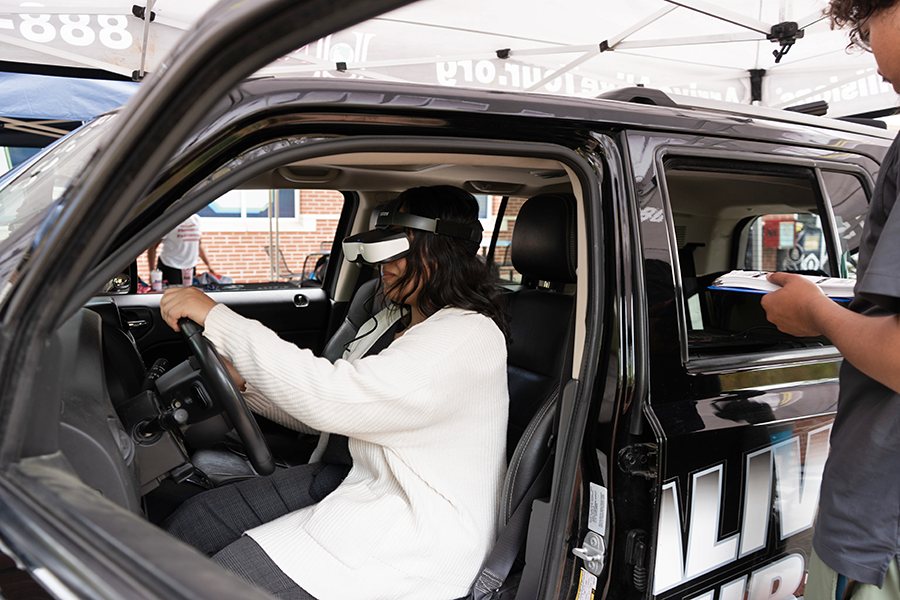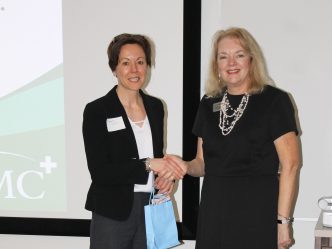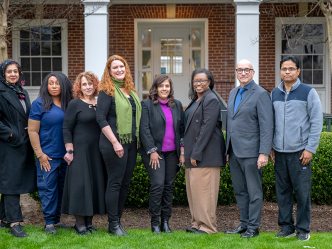The Arrive Alive Tour visited Augusta University on April 3 to educate students about the dangers and consequences of driving while drunk, distracted or impaired. Student Wellness Programs, the Augusta University Police Department and the College Prevention Partnership collaborated to drive home the message, “Drinking or driving – you can’t do both.”
The tour used technology like a high-tech simulator and an impact video, impairment goggles and mock traffic tickets to give students real-life scenarios. The simulator had three options – alcohol, distraction and marijuana – which allowed students the opportunity to “sit behind the wheel” of an immobilized car and don a virtual reality headset that put them within one of the three scenarios.
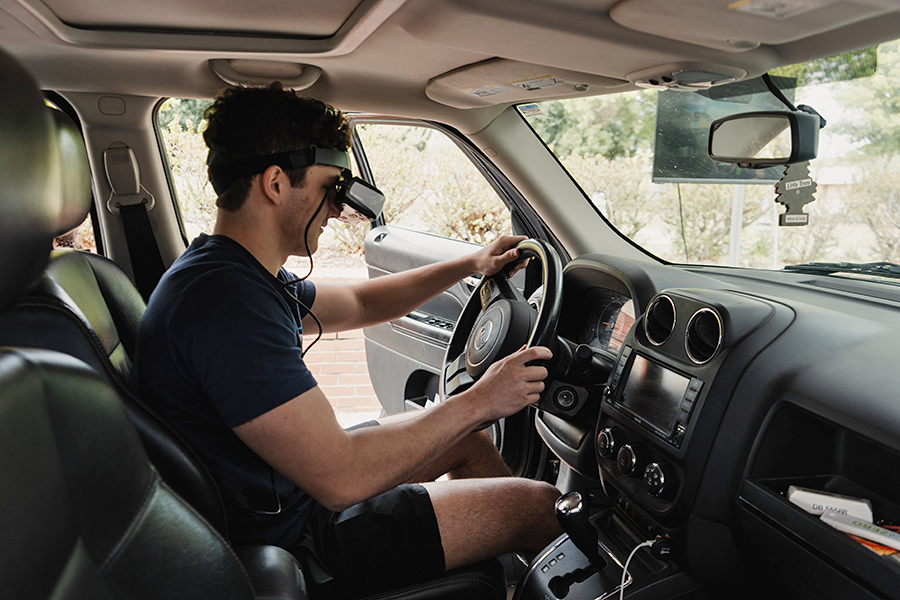
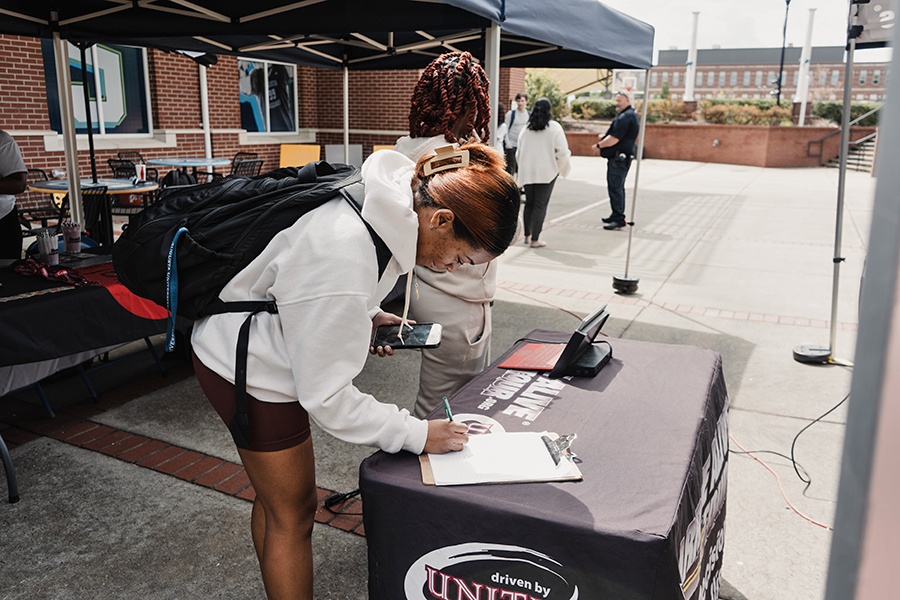
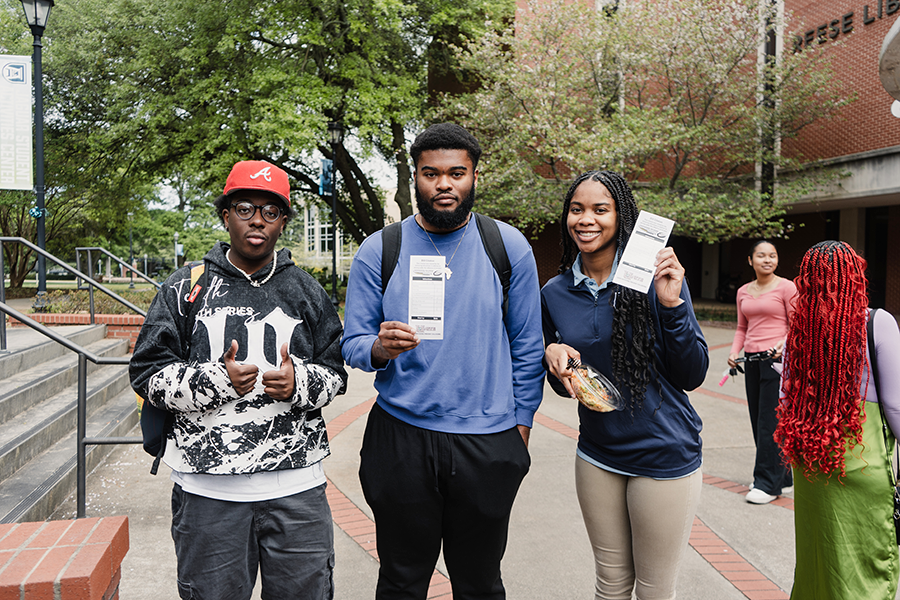
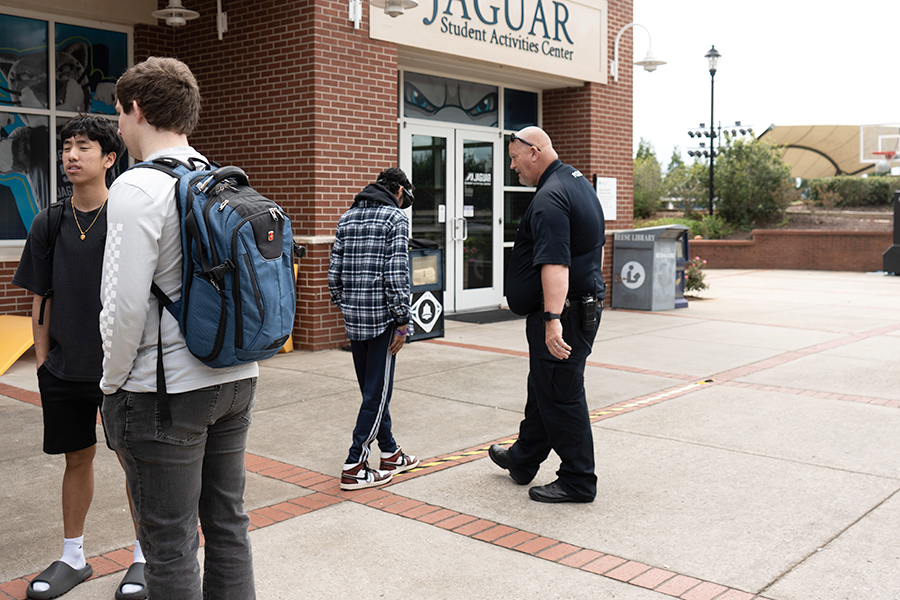
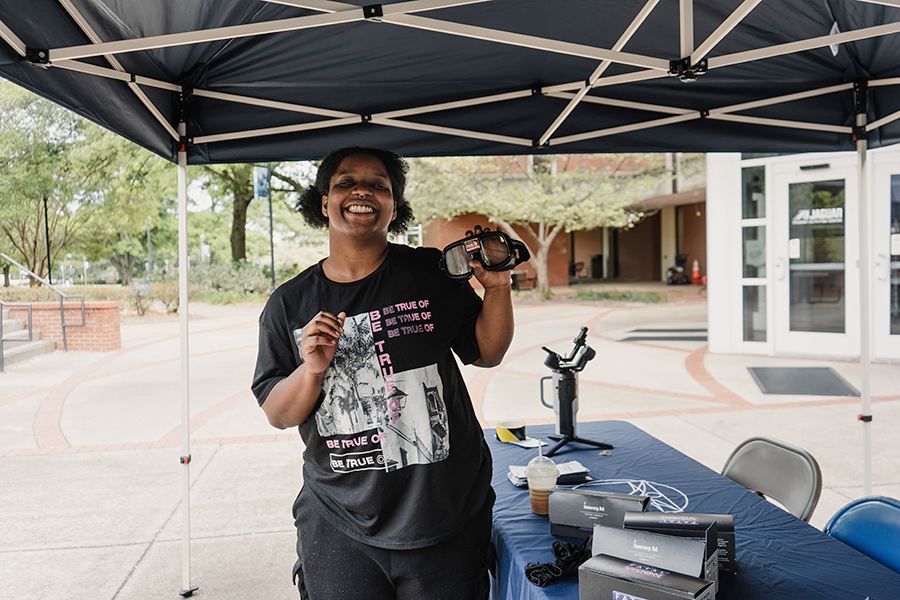
Morgan Davis, Augusta University’s student wellness coordinator, emphasized the tour’s role in raising awareness about the potential risks that students face, should they engage in impaired or distracted driving.
“The simulation provides a level of impact that students would not be able to experience with any of our other events that discuss alcohol awareness and DUI prevention. It gives the message that it is not worth risking your safety by getting behind the wheel while impaired and that text messages can wait until you reach your destination,” Davis said.
Informational pamphlets distributed during the event highlighted statistics from the National Highway Traffic Safety Administration (NHTSA), revealing drivers between the ages of 21-24 account for 27% of fatal alcohol-related accidents. Further, the NHTSA states about one-third of all traffic-related deaths include drunk drivers.
“They think ‘Oh, I’ve only had a few drinks. It’s OK, I can still drive,’ but it’s a dangerous situation. We need to stay safe and arrive alive.”
Kaniyah Colbert, senior communication major and social media coordinator with Student Wellness
Not only that, AU Police Lt. Jimmy Laird explained there are many “hidden dangers” when driving, and the risk of a crash only increases when the driver is under the influence and unable to make sound decisions. Arrive Alive creates a safe environment where students can grasp the gravity of impaired driving without endangering themselves or others, thereby curbing these deadly statistics and preventing accidents from occurring.
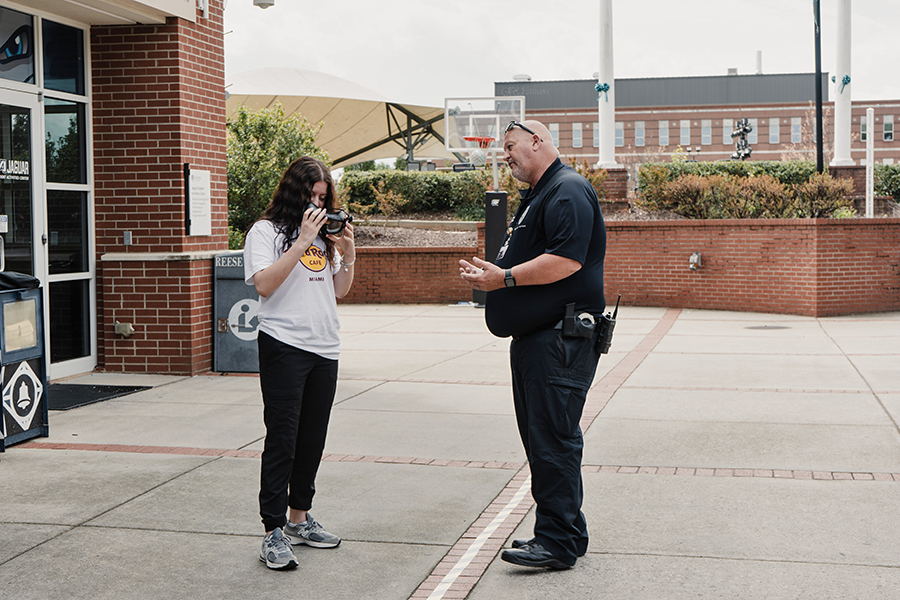
During the event, Ronald Doe, a fourth-year undergraduate cell and molecular biology major, shared his experience with the impairment goggles, which simulated a 0.12-0.15 alcohol blood content. Doe was asked to walk in a straight line without showing any obvious signs of struggle.
“It was disorienting. I actually had to focus on walking, which is something I’ve never had to do before,” Doe explained. “The fact that I can’t handle basic motor functions under the influence of the goggles is pretty telling, like I shouldn’t be drinking and doing anything else at that point.”
Many students who participated in the driving simulation found the experience to be very eye-opening. Ansil Mathew, a second-year undergraduate computer science major, sat behind the wheel and quickly found that she did not have much control.
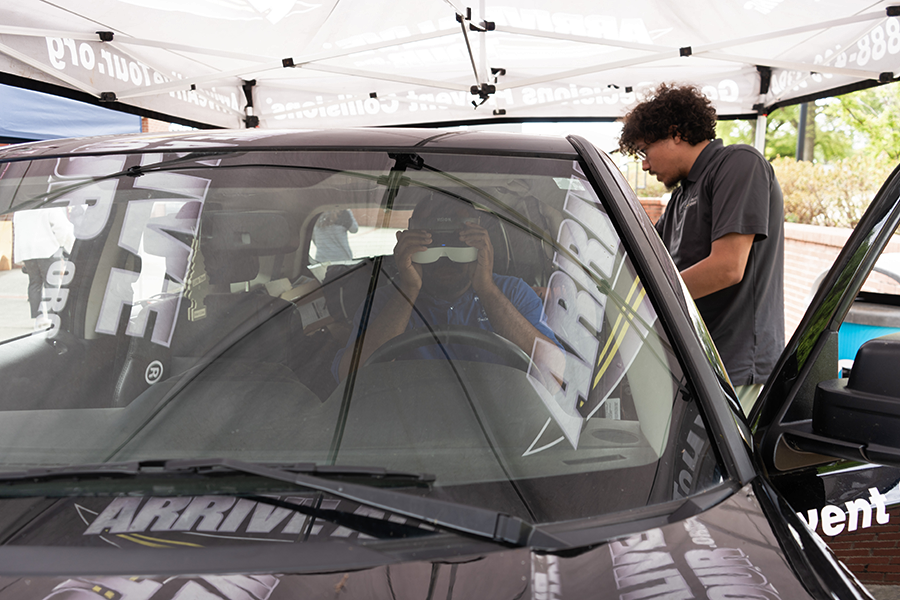
Kaniyah Colbert, a fourth-year undergraduate communication major and social media coordinator with Student Wellness, hopes students take the tour’s message to heart and prioritize safety.
“I hope students take away that this is a real issue, especially in our generation,” Colbert said. “They think ‘Oh, I’ve only had a few drinks. It’s OK, I can still drive,’ but it’s a dangerous situation. We need to stay safe and arrive alive.”
The effort to prevent and educate about the dangers of drunk, distracted or impaired driving could potentially save a person’s life. To assist individuals in making responsible choices, the NHTSA provides tips like choosing a designated driver, using ride-hailing services like Uber or Lyft, not getting in a vehicle with someone who has been drinking, eating food before consuming alcohol and pacing out drinks.
For more information, visit the Arrive Alive Tour website.
 Augusta University
Augusta University
